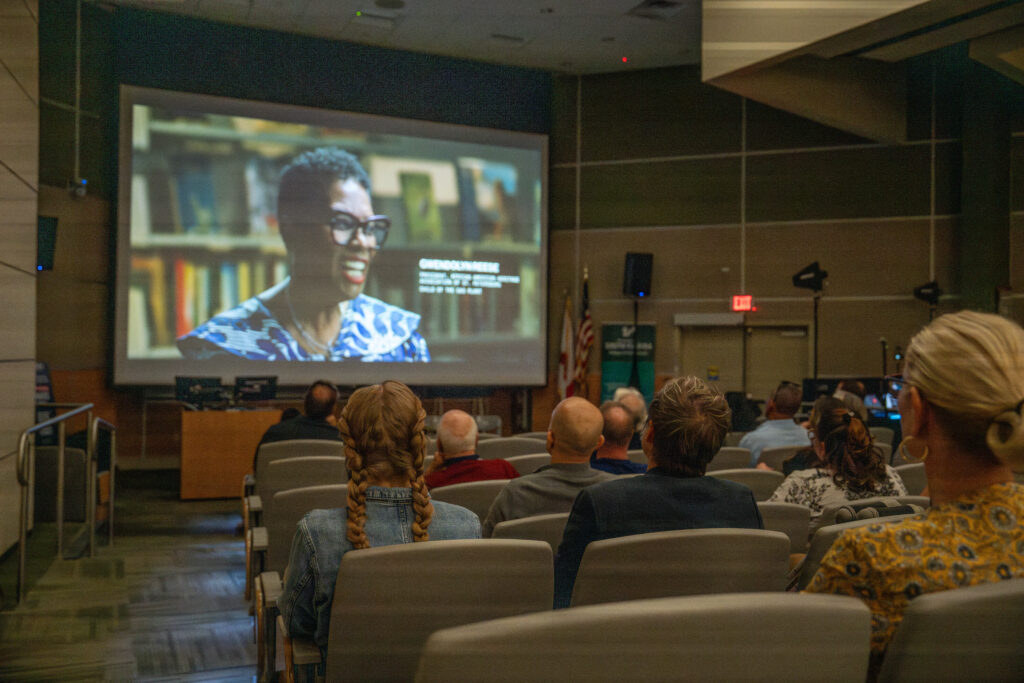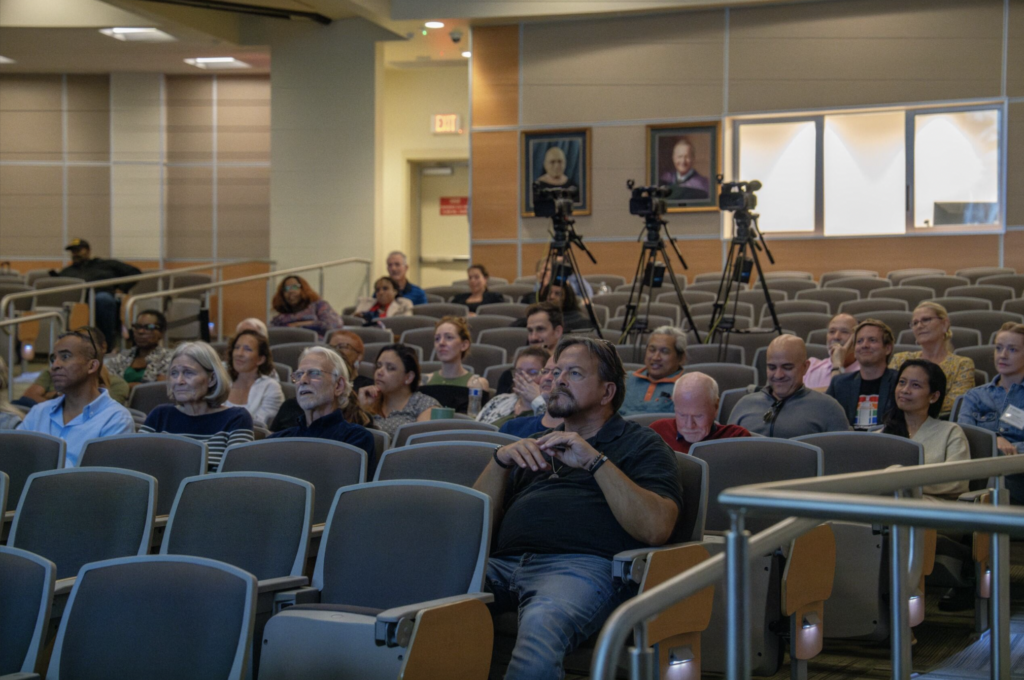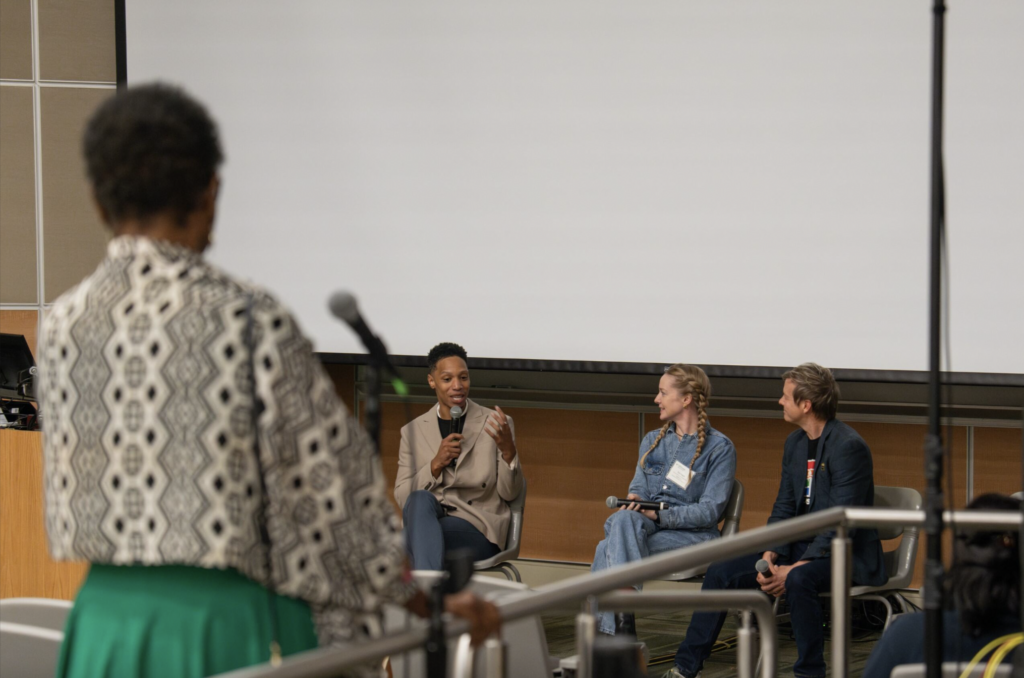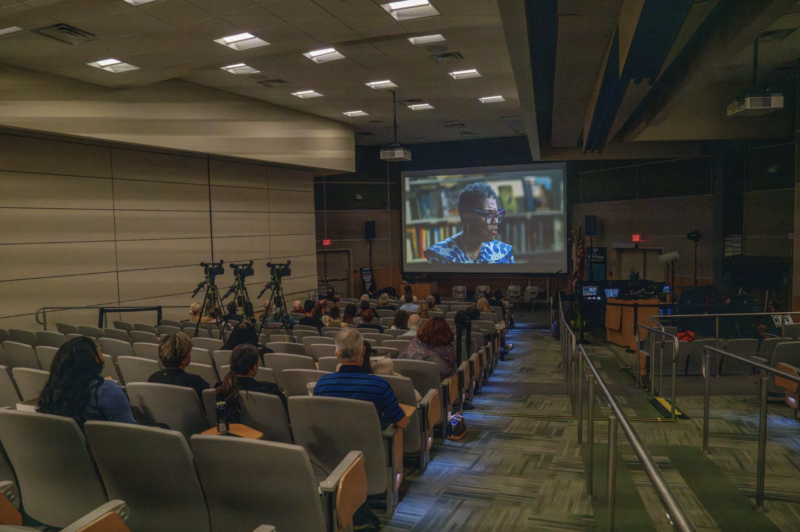By Anastaciya Pellicano
Over 800 people attended the twice sold-out premiere of the new documentary “Razed: Lies, Baseball, and the Price of Progress” on Saturday, Feb. 22 and Sunday, Feb. 23, according to its creators.
While the initial screening was held at the Foundation for a Healthy St. Petersburg’s Center for Health Equity, the overwhelming amount of support prompted the Razed team to appease public demand with an additional screening on Friday, Feb. 28, as part of the inaugural Festival of Films from the Institute on Black Life at the University of South Florida Tampa campus.
Roundhouse Creative’s film director Andrew Lee and assistant director and co-producer Tara Segall took on the long overdue project of disinterring the history of St. Petersburg’s Gas Plant District, a once-thriving Black neighborhood that was displaced to make way for Tropicana Field.
According to the Razed team, the film provides a chair at the table for those who were displaced and allows them to finally be involved in the conversation of this irreversible redevelopment.

screening on Feb. 28, 2025, as part of the inaugural Festival of Films from the
Institute on Black Life at the University of South Florida Tampa campus. (Photo by Anastaciya Pellicano/NNB)
For the purpose of dissemination, the premieres also included time with a panel featuring the filmmakers and former Gas Plant residents. These events held space for attendees, including former residents of the Gas Plant District, local activists, historians, city officials, teachers, students and all others interested in learning about the redevelopment.
David Ponton, associate professor and chair of the Racial Justice Initiative at the University of South Florida, was among those in attendance both on Sunday and again on the following Friday. With a knowledgeable background in Black history and systemic inequalities, Ponton spoke on how Razed captured the emotional and historical weight of racism during the panel discussion on Friday.
“Of course, there’s discomfort with telling a story in a country with racist devices when you’re talking about race,” Ponton said. “At the same time, it’s not just a story about a Black community. It’s a story about a community that experienced trauma–and so that’s another different type of layer of discomfort that comes in. We get up to the point oftentimes where we are discomforted and then we recoil, and we go backwards, and I think you have to push through the discomfort to the other side, which is this empowerment, and that’s what we got to see and feel because of the willingness to push forward with it.”
Razed depicts the history of the Gas Plant District. A lost home to generations of Black families and Black-owned businesses, before the city’s redevelopment plan promised economic revitalization. Many former residents and their descendants feel that those promises were never fulfilled, and the documentary brings their stories to the forefront.

Throughout the discussion of this documentary and the history it presents, a recurring theme emerged, the erasure of a once-thriving community. However, through the creation and release of this documentary, that sense of community has been rediscovered, according to attendees.
“Every child had a mother and father in every house, regardless of whether there was a blood tie,” Segall said. “They were the community’s children. Everyone knew everybody, and when the construction started, and people left, it was all lost.”
Lee also emphasized the emotional impact of that lost community.
“That’s definitely something that touched us, understanding just how significant that sense of community was to those folks who lived there, and just how much loss they feel to this day,” Lee said.
The team’s commitment to authenticity and respect for the people who lived through the trauma of displacement began during the initial conversation about creating the documentary.

“One of the first things we did when Tara and I started talking about the idea of making this documentary was to reach out to Ms. Gwendolyn Reese, who’s prominently featured,” Lee said. “We know that Ms. Reese holds so much of this history in our community, and it would not be possible for us, or appropriate, to try to tell this story without her guidance and support. So luckily for us, she jumped on board and helped us produce this film. Her involvement established trust and credibility and without her vouching for us, many people might not have shared their stories.”
According to the filmmakers, they’ve received an enthusiastic response to the film’s premiere.
“The turnout and support genuinely surprised us,” Segall said. “We expected attendance primarily from residents featured in the film and family members, but this story clearly struck a chord with the broader community. Many people who weren’t directly involved with the film saw their own memories, lives and experiences reflected on screen.”
In addition to Segell’s sentiment, Lee also added that he felt the emotional response from viewers.
“We were deeply moved when multiple former residents stood up and stated that this was the first time in their lives they had felt truly seen and heard,” Lee said. “Some shared that they had spent years feeling like their stories had been erased, and this film gave them a platform to reclaim their history. That level of emotional impact was something we hadn’t fully anticipated.”
Segall noted the film’s growing impact since its premiere, sharing that the St. Pete Downtown Partnership and Economic Development Corporation expressed interest in screening it for their investors. Community members have also requested private shows to present the film to their own organizations.
“What was missing was kind of a unified front from the community,” Segall said. “If we want to see folks not being taken advantage of by the system, by greed, by the development and the progress that maybe isn’t putting people above money, [then] we have to band together to make sure that we’re all on the same page.”

